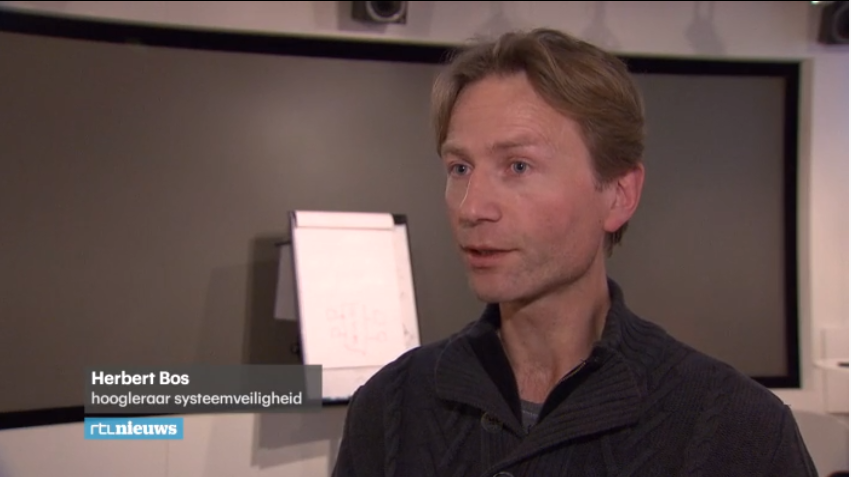Herbert was interviewed on BNR Radio (Dutch). The interview is mostly about Rowhammer vulnerabilities.
AnC wins Pwnie Award at Blackhat USA 2017
AnC won the 2017 Blackhat Pwnie award in the category Pwnie for Most Innovative Research. Luckily, Victor was there to receive this award on behalf of the AnC team!
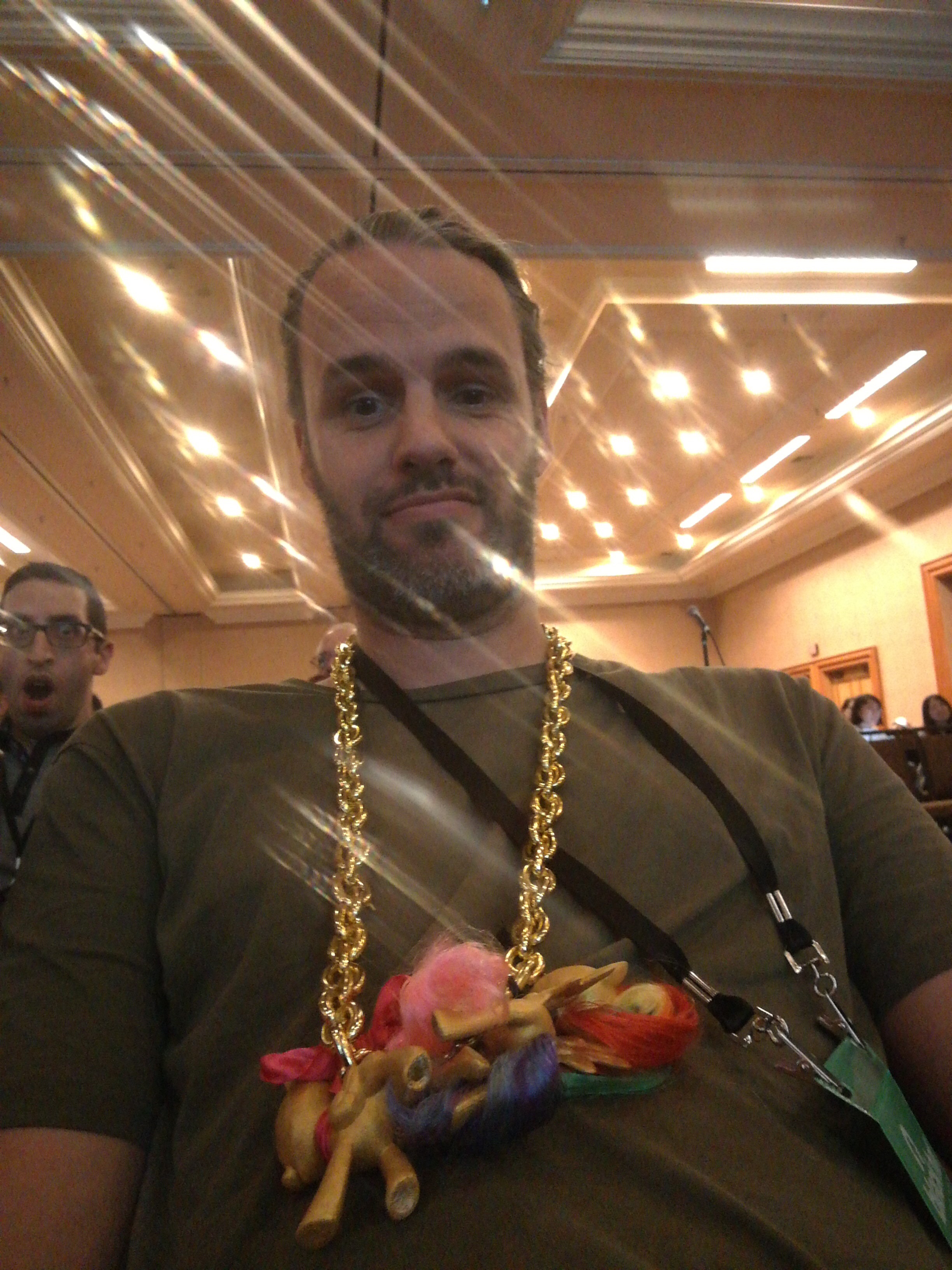
To quote the pwnie award site:
-
Exploit writers have been bending over backwards to try to defeat ASLR for the better part of a decade. Usually this requires finding some soon-to-be-patched memory disclosure bug. Of course this is a hard job and needs to be repeated for different browsers/plugins/versions/etc. Then these guys come along with a universal ASLR bypass based on timing of the caching of memory access. Of course this works using Javascript in most browsers by default and isn’t really something you can fix very easy. Seems too easy, I think I’ll keep looking for infoleaks like a real hacker.
Vusec is proud of the industrial and scientific recognition of this work.
DRAMMER wins pwnie award at Blackhat USA 2017
DRAMMER won the 2017 Blackhat Pwnie award in the category Pwnie for Best Privilege Escalation Bug. Luckily, Victor was there to receive his award in person!

To quote the pwnie award site:
-
Mobile computing row hammer attacks (MC Hammers, for short) are terrifying. You can’t touch them and can only hope that, please, they won’t hurt you.
Vusec is proud of the industrial and scientific recognition of this work.
Dennis wins best paper award at EuroS&P 2017!
Dennis’ paper “Compiler-Agnostic Function Detection in Binaries” just won the best paper award at EuroS&P 2017!
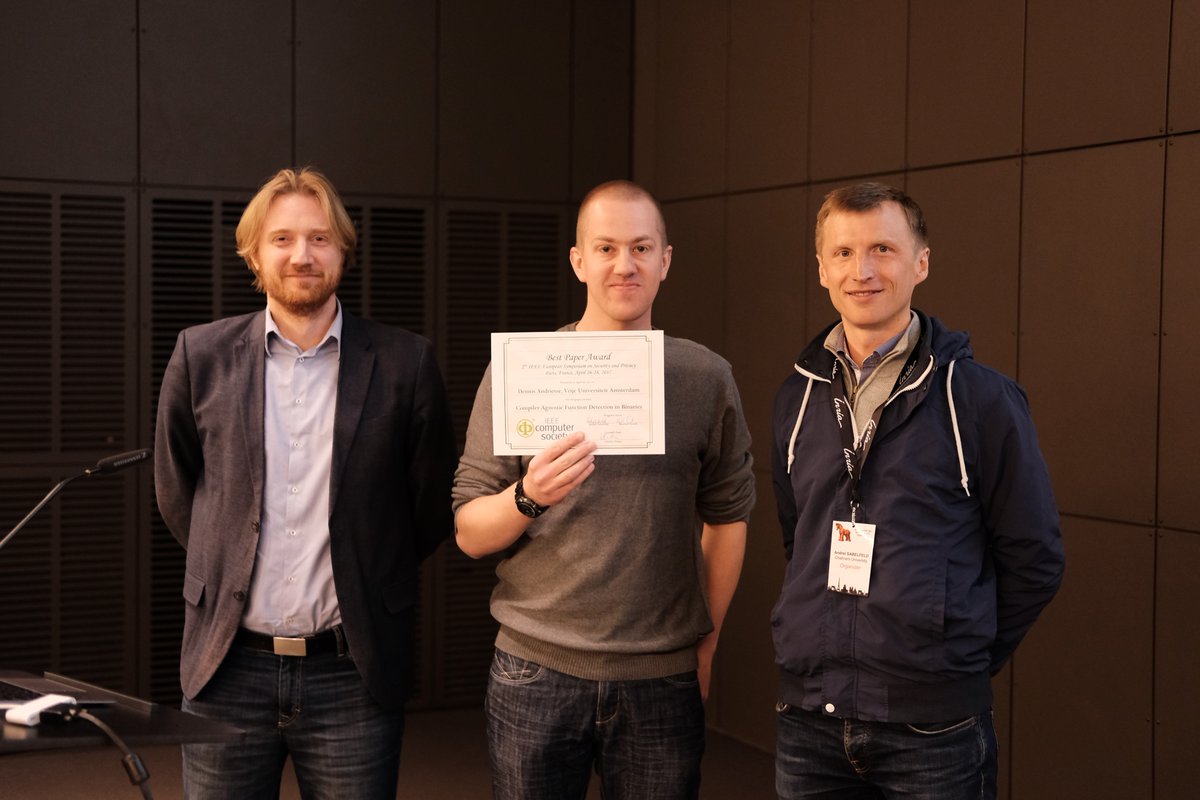
Drammer wins the Dutch Cyber Security Research Paper Award!
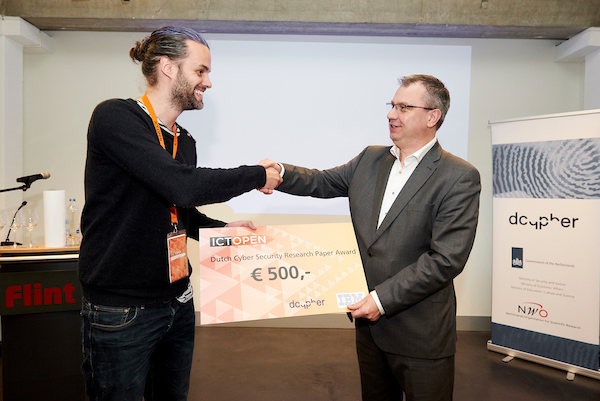
During the ICT.Open 2017 conference in de Flint Amersfoort, Victor won the best Dutch Cyber Security Research Paper (DCSRP) award for Drammer. Published at the CCS’16 conference in Vienna, Drammer shows hardware bit flips on mobile devices and their reliable exploitation for the first time.
DCSRP recognizes the best recent non-commercial scientific cyber security research paper in the Netherlands. More information can be found here.
Herbert’s dog is on TV
On March 2nd, Herbert and his dog were interviewed for De Kennis van Nu on Dutch national TV. (Dog enters 13m43s into the show.)
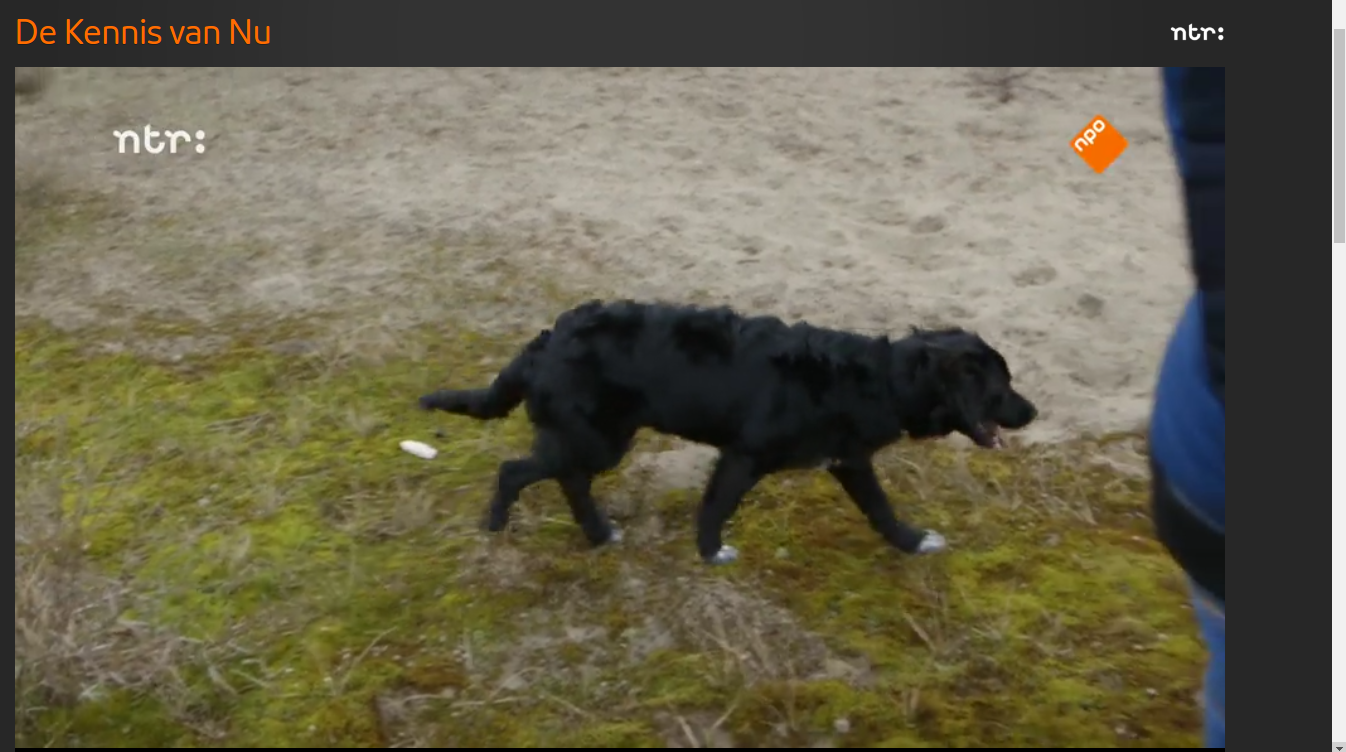
ASLR^Cache or AnC: A MMU Sidechannel breaking ASLR from Javascript, and media coverage
Today we announce ASLR^Cache, a MMU sidechannel exploiting a micro-architectural property of all modern CPU models. This signal is even visible from Javascript and breaks ASLR in sandboxed environments. The name ASLR^Cache (or simply AnC) is a reference to the fact that ASLR and CPU caches are mutually exclusive on modern architectures. For more information, please see our AnC project page.
Press outlets and other organisations have picked up on this work: wired, arstechnica, ACM Tech News, NCSC, bleepingcomputer.com, Tom’s Hardware, security.nl, theregister, tweakers.net, digitaljournal.com, CSO Australia, hackaday, slashdot, securityweek.com, heise.de, theinquirer.net, itnews.com.au, eejournal.com, habrahabr.ru, impress.co.jp, paper.li, boingboing.net.
Also some of our favourite podcasts picked it up: securitynow episode 600, ISC Internet Storm Center podcast, risky.biz episode #444.
Dutch elections vulnerable
RTL Nieuws (TV, Dutch) reported on the vulnerabilities in computers used in Dutch elections. Asked for a reaction, Herbert agrees this looks bad. A few days later, the government decided to stop using the vulnerable systems. On Feb. 1st, the New York Times also reported on this.
MSR Ph.D. Scholarship
Our MSR Ph.D. scholarship application was accepted. Looking forward to a few years of analysing and mitigating interesting new ways of leaking information.
Comments legislation Intelligence and Security Agencies
The current proposal for new legislation in The Netherlands for intelligence and security agencies has issues. More safeguards are needed: open letter (Dutch only).


